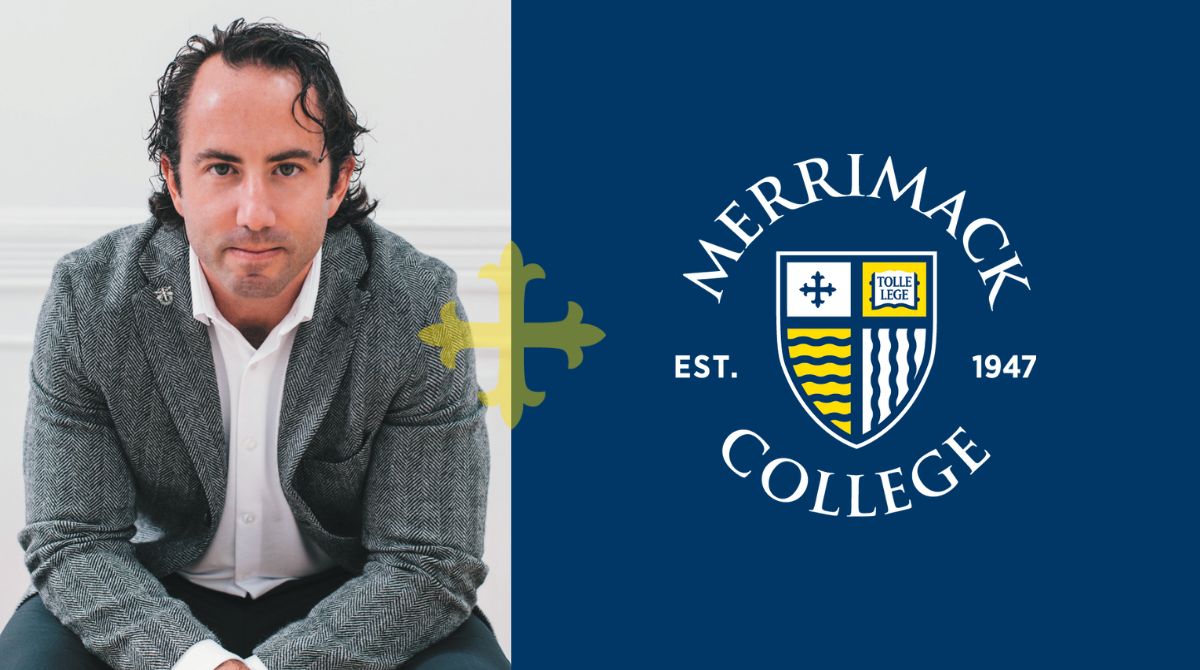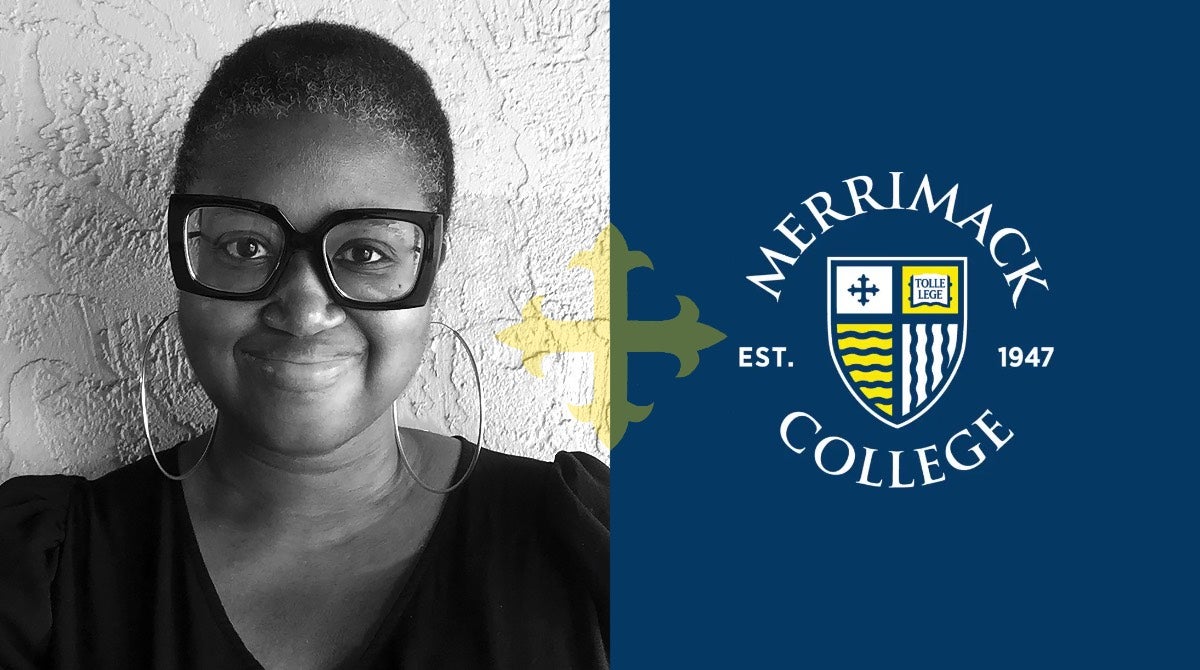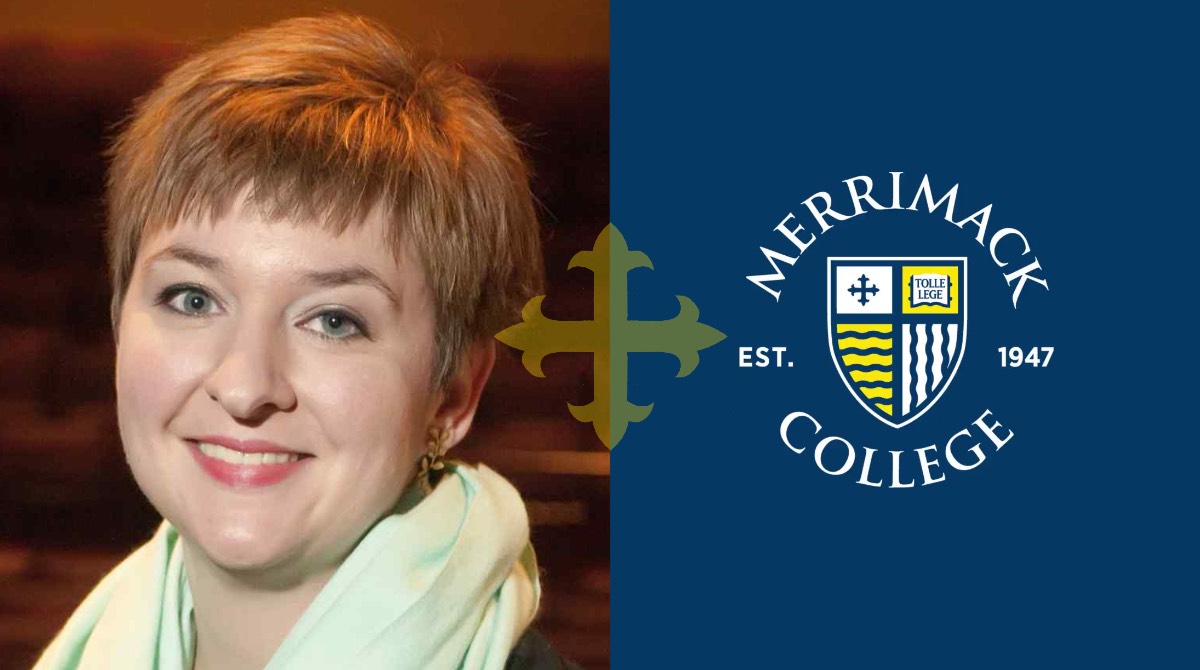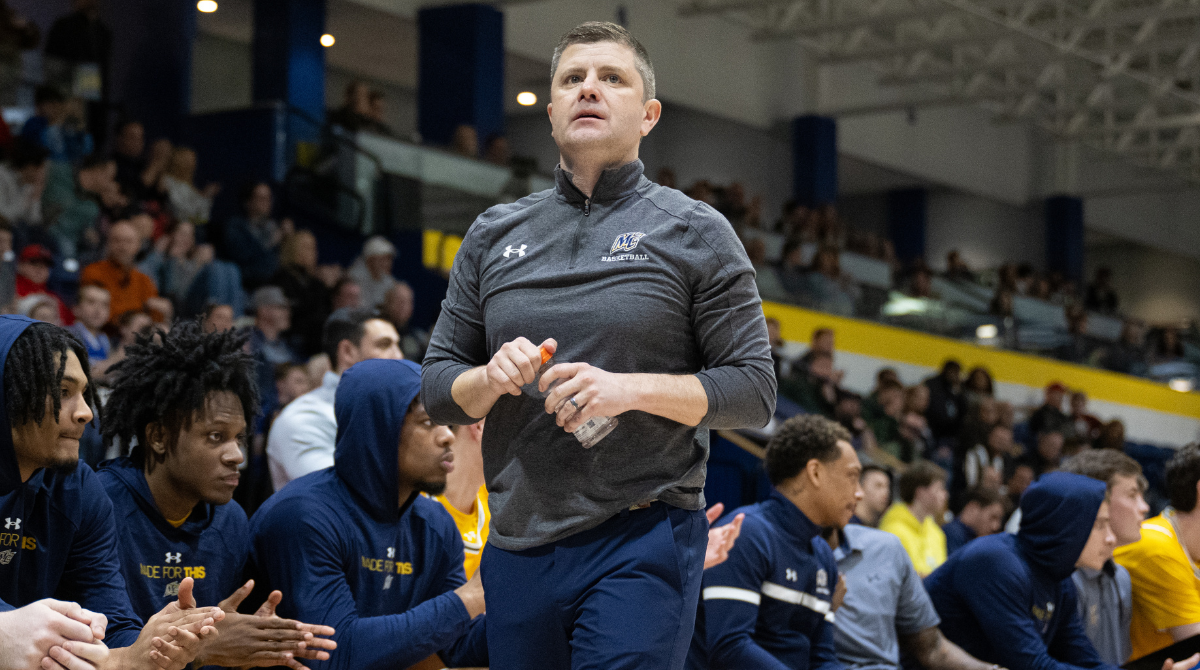To meet the demands of new mandatory health screening protocols and tightened campus security, Merrimack has relied on its students to help fill critical roles. At the same time, these roles have provided students with paid experiential learning opportunities aimed to continue to make the Merrimack campus safer for all.
After Merrimack moved to remote learning in Spring 2020, the Hamel Health Center created a comprehensive plan to safely open up the campus in time for the fall semester.
“As the pandemic progressed, it became apparent that the College would need to open a ‘mini public health’ operation on campus that included frequent self-monitoring and testing,” said Traci Alberti, interim director of Merrimack Campus Health Services and director of COVID-19 Campus Surveillance.
In response, Campus Health Ambassador roles were created to help manage new tasks borne from the College’s COVID-19 mitigation and response plan. Today, more than 50 ambassadors carry out temperature screenings at the testing center, student registration and line management. Some also help with special projects and health promotion efforts — focused on topics such as handwashing, wearing face coverings and vaccine education. All students are paid for their work. Some may work under 10 hours per week, whereas others work 20-30 hours per week.
“It is definitely serving two purposes – we are encouraging students to stay on campus and be safe, and we are creating an employment opportunity and opportunities for role modeling and leadership,” she said.
Jenna Small, a junior public health major, started her job as a Campus Health Ambassador last summer after receiving an email that explained the College would be opening a testing center and needed students to help needed student workers to help implement the College’s response.
“I was eager to work on campus for the first time and considered the role a good opportunity to both earn money and add public health experience to my resume,” she said.
Working at the testing center nearly every day, Small checks people in, registers new patients and designs health promotion efforts that educate community members about what’s happening on campus in relation to COVID-19.
“Even still today, I am educating people every day,” she said. “When people first come in, they are very uncomfortable because this is something none of us has ever done before and it can be daunting. I try to be happy and nice and that helps to relax people and make them more comfortable.”
Earlier this month, the testing center collected its 100,000th test. While Campus Health Ambassadors do not evaluate test results or take part in contact tracing, they receive valuable public health training and learn how to collaborate with other partners to keep their community safe.
The pandemic also prompted Merrimack to look at how it needed to manage residents, visitors and vendors looking to access the campus.
“Leadership knew that the College would no longer be able to operate an open campus in the fall and needed to design a process to safely allow for campus entry,” said Andrew Maylor, vice president and chief business officer at Merrimack.
Working with the Criminal Justice Department and the police chief, Maylor proposed a program that would allow students to work as campus security officers at one of the checkpoints on campus, under the direction of the Merrimack College Police Department. In addition to getting paid to check student health screening apps and monitor vendors, student security officers receive training that could help prepare them for criminal justice careers.
“The student campus security jobs allow students majoring in the discipline to receive four academic credits for CRM 4800, the required Criminology Internship,” said Jacqueline Gillette, academic program manager of criminology and criminal justice. “With many police departments, courthouses and corrections facilities restricted to the general public, off-campus internships have been more difficult to obtain.”
“It’s been great. They protect the campus and make sure anyone who wants to enter the campus shows that they are cleared on their (CoVerified) app,” she said.
Zinha Andrade, a graduate fellow who supervises student campus security officers, earned her bachelor’s degree in criminology and criminal justice last December and works at least 25 hours each week scheduling the 38 student workers currently employed under the program. She answers questions, helps with policy updates and puts together training programs and in-service activities for staff. She initially wanted to become a police officer, but now says she’s open to other opportunities in the criminal justice field. Andrade credits the job for providing her with supervisory experience and for giving students the opportunity to learn how to protect their campus in a high-stakes environment.
“Students learn that their job is to keep the campus safe because COVID-19 is real and it’s important for them to know who is on campus and who is allowed to be here – especially if there were ever to be an outbreak where we’d have to trace people,” she said. “As their supervisor, I am able to relate more to the students and know what could be implemented and what might not work.”
Abel Trejo, who spent six years on active duty in the Air Force before enrolling as a criminal justice major last September, has also benefited from new student employment opportunities. Trejo currently works 32 hours a week as a campus security officer and is also fulfilling his internship requirement through working in the role. His goal is to take the civil service exam and become a Massachusetts State Police Officer – and eventually secure a job with the FBI, CIA or DEA. Both the pay and the opportunity to learn from campus police officers drew Trejo to the security role.
“I like that I am able to pick the brains of the police officers that I encounter at the gate during my overnight shifts,” he said. “They tell me things that have happened and it’s interesting to learn how they handle things.”





